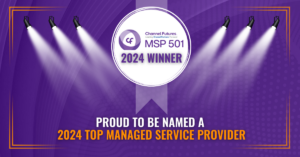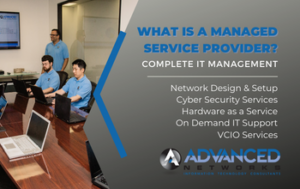 Cybercrime has become just like a movie with multiple sequels, which set up your IT consultants in Los Angeles to be the hero. However, in order to implement effective cyber security, your tech support team must be at the forefront of new technology. Your team needs to be aware of typosquatting, which involves hackers hijacking well-known URLs by impersonating them.
Cybercrime has become just like a movie with multiple sequels, which set up your IT consultants in Los Angeles to be the hero. However, in order to implement effective cyber security, your tech support team must be at the forefront of new technology. Your team needs to be aware of typosquatting, which involves hackers hijacking well-known URLs by impersonating them.
Emergence of Typosquatting
What worked last year for cyber security might not work next because cybercriminals keep learning new ways to penetrate systems. One of the latest tricks hackers have used is typosquatting, which involves buying domain names that are similar to popular site names as an attempt to fool users. The technique is designed to either increase traffic or infect visitors with malware.
Many times, people type in the wrong URL and sometimes can land on an imposter’s site just by being one letter off. Sometimes hackers will use different extensions such as .net at the end of a familiar domain if it is available. Most people are not familiar with .om as a suffix, but it is a top-level domain for the country of Oman and it is the one used by hackers because major companies typically are not going to use that suffix. Nevertheless, since it is just one letter off from .com and people sometimes accidentally type .om, it is useful for cybercriminals to exploit.
When you accidentally type in a URL that does not exist, you will get a DNS resolution error. However, if a hacker purchases the incorrect domain, you will be sent to the wrong site and potentially pay the consequences. The attacker may place an application on the site that warns the user they need to download security software, which turns out to be annoying adware or destructive malware.
How to Avoid Adware and Malware
Geneio adware attaches to your browser as an extension that floods your screen with ads. It is mostly a nuisance but Genieo malware is capable of changing browser configurations such as modifying your home page. Hackers can use it to set up a more elaborate malware attack over a period of several months. Once installed, the software is very difficult to remove.
The best solution from your IT consultants in Los Angeles to implement and avoid adware and malware is to educate your staff about cybercrime. They should also protect your data and applications with multiple security layers such as virtualization and network monitoring software.
Your IT provider should play the role of a computer consultant that takes proactive steps to reduce vulnerabilities. A major weakness among many companies is that security is taken lightly, and employees are allowed to visit any websites they want. Either the company or the IT team needs to set policies as to which sites and applications employees are permitted to use. They need to be aware that just because a link shows up in Google, is not a guarantee that it is safe.
Conclusion
If you want maximum protection for your network, consider IT consultants in Los Angeles that has plenty of expertise about the latest cyber security solutions. Contact us at Advanced Networks to learn how we can make your network more secure.




